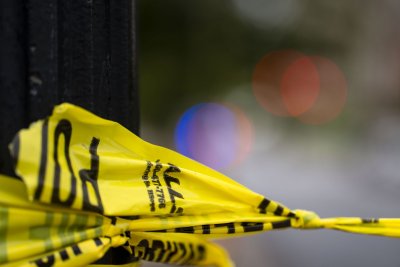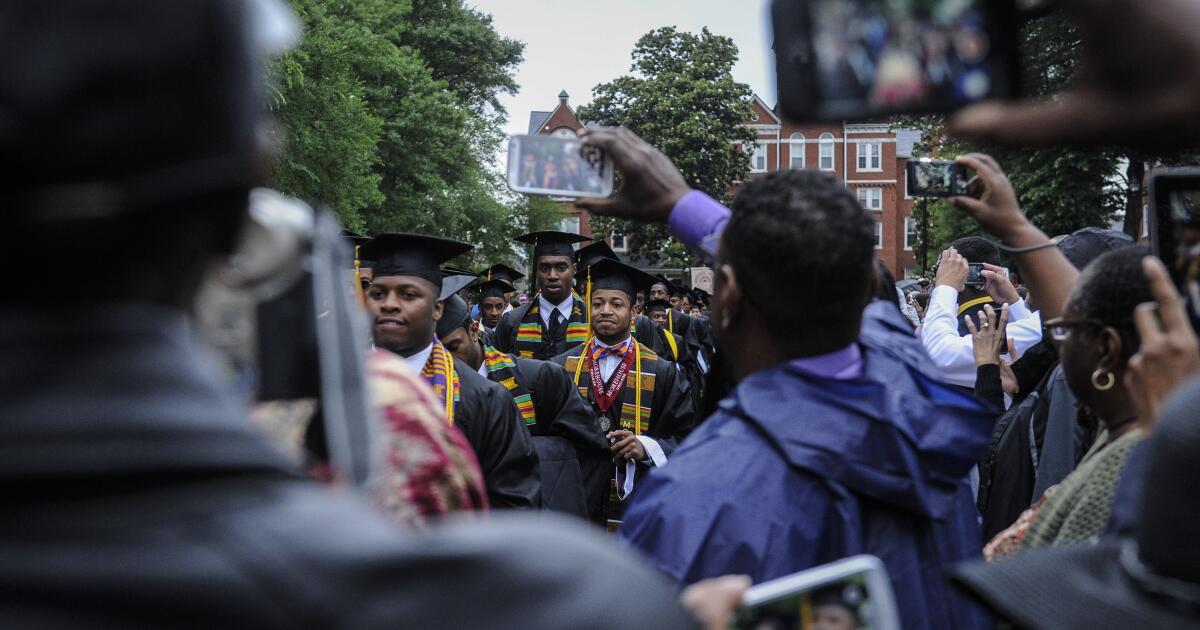Like many of his predecessors, President Trump has affirmed the importance of historically Black colleges and universities, hailing them as a pathway to careers and a better life for students in the U.S.
The schools have not faced cuts to federal grants of the kind that have rocked Ivy League schools Trump has blasted as hotbeds of “wokeness” and antisemitism, and the president has said HBCUs’ core federal funding is not at risk.
But that is not to say it’s a comfortable time for HBCUs’ leaders. As the Trump administration cracks down elsewhere on programs to support underrepresented students, the colleges have been expressing gratitude for the administration’s recognition while mostly keeping quiet on its sweeping attacks against diversity, equity and inclusion policies.
“HBCUs, in general, I don’t believe are in a position to be adamantly and vociferously opposed to these attacks, but deep down we all know what’s going on,” said Deron Snyder, an alumnus of and professor at Howard University. “It’s just how much can you actually say without fear of retribution.”
An executive order signed by Trump in April recognizes HBCUs and pledges his administration’s support. It calls for an annual White House conference, private-sector partnerships and an advisory board with the Education Department, but it does not guarantee any new federal funding.
The order won praise from some Black universities, including Howard University and Morgan State University, as well as organizations that work with HBCUs. Harry Williams, president of the Thurgood Marshall College Fund, said the order should serve as a call to action for corporations, foundations and lawmakers to redouble support for HBCUs and their students.
But the colleges’ leaders have said little on other administration actions that are out of line with the mission of HBCUs, which were founded to educate formerly enslaved people.
The administration’s campaign against DEI has encouraged restrictions on classroom discussions around racism and led to cuts in federal research grants. As it threatens to cut federal funding from schools, some colleges have closed diversity offices and ended other programs to support students of color.
For HBCUs, the moment is reminiscent of the era decades ago when Black colleges were compelled to argue that school segregation was wrong but also needed to maintain government support for their institutions, said Marybeth Gasman, a Rutgers University professor who has studied the history of HBCUs.
Black college leaders “don’t want HBCUs to be under the umbrella of DEI, but I don’t know any HBCU president who would agree with the way that Donald Trump is dismantling diversity, equity and inclusion efforts,” she said.
The Trump administration has cut federal research grants for several universities, pressuring them to comply with his agenda. Since Harvard University refused the administration’s demands for changes to its policies and leadership, the government has slashed $2.6 billion in funding, which the Ivy League school has described as retaliation.
In an interview in April, Trump told NewsNation that Black colleges and universities should not be concerned about losing their funding.
U.S. Rep. Terri Sewell (D-Ala.), vice chair of the House HBCU caucus, said there has long been bipartisan support for the colleges. But she said there will be new vigilance of their federal support in light of the administration’s record on programs serving minorities.
Sewell said it is also alarming to see the administration move to dismantle the Education Department.
“We’ll be pushing back fiercely against that and do all that we can to make sure that our HBCUs get the money that they deserve,” Sewell said. She said the Congressional Black Caucus has been paying close attention to the Republicans’ funding plan for a program that supports 19 HBCUs through the U.S. Department of Agriculture.
Williams, of the Thurgood Marshall College Fund, said HBCUs have exceeded all expectations of the opportunities they have provided for underrepresented students. He said he is grateful for the administration’s support, but when asked about its actions toward diversity initiatives, he said the administration has challenges it is working through.
“Hard work pays off and education pays off. That’s why these institutions are so critical to this country,” he said. “The realities of those other challenges that we’re grappling with right now in terms of what the administration is dealing with as it relates to their priorities, we were just pleased to know that they recognize the importance of what these institutions have done for the country will continue to do in a very deliberate way.”
Mumphrey writes for the Associated Press. AP writers Collin Binkley and Matt Brown in Washington contributed to this report.

